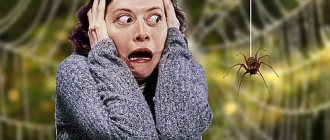What is astrophobia
Astrophobia is an irrational, panicky fear of the stars. And the point is not at all in the light and image of the stars. Rather, fear is associated with associations: limitless space, loneliness, darkness, death, aliens, mysticism. Sometimes associations are completely unexpected and strange for those who do not suffer from astrophobia.
Interesting! Many people report that looking at the night sky makes them feel sad, wonder about their lives, daydream, or look back. Perhaps, for some astrophobes, the fear of stars and the starry sky is associated with an existential crisis (the search for the meaning and purpose of life, answers to the questions “Who am I?” and “Why do I live?”).
Signs of astrophobia
Each patient has his own fears and stories behind them. All this is related to the severity of the disease. Some patients say that they tightly curtain their windows every night because they are afraid of the influence of alien creatures. Patients feel that aliens are directing special laser beams at them to reveal their exact location and then take them home. Patients cannot tell what happens next, since they move their beds to closets or rooms without windows.
Also, when walking in the evening, people suffering from astrophobia wear sunglasses so as not to see the brightness of the stars and not experience fear. Basically, signs of astrophobia are associated with the behavior and well-being of people. Some are afraid to watch films where there are aliens or various cosmic creatures that are taking over our planet and harming people. Others are afraid to be in places that, in their opinion, are suitable for UFO landing.
However, there are also very sick people. These are those who believe that the government knows about the existence of aliens and allows spacecraft to land in special places. Such patients cannot do without a psychiatrist. Speaking about the physical manifestation of the phobia, it must be said that an astrophobe may have twitching of the arms and legs, increased sweating, and an inability to control their emotions and actions. If, with such symptoms, the patient is not at home, but in an unfamiliar room, then he may, in a fit of fear, simply lose his bearings, get lost and go crazy.
Reasons for fear of looking at the stars
Reasons for the development of fear of stars and the starry sky:
- Genetic predisposition. If someone in the family has been diagnosed with anxiety disorders, there is a 50% chance that the child will also develop an anxiety disorder.
- Psychotrauma received in adulthood. For example, a child had a big quarrel with his mother during an evening walk. Or something bad happened while visiting the planetarium. Or a child sincerely made a wish on a falling star, but it never came true. Or the child was forced to study astronomy and punished for mistakes. Etc.
- Psychotrauma received in adulthood. For example, an astrophobe was dumped by a girl during a romantic walk under the starry sky. Or the person was attacked in the evening.
- Superstition, suggestibility. Some people believe in mysticism and aliens. And stories from friends or reports from the media only add fuel to the fire. Or maybe a person was impressed by a book, a film about stars, space.
- Professional burnout. Astrophobia can develop against the background of professional burnout in astronauts. For example, against the backdrop of an unsuccessful flight to the moon.
- Fear of meteorite. Some people believe in the apocalypse and are afraid of a meteorite falling.
Interesting! The principle of formation of astrophobia may be indirect. For example, a child had a poster with a starry sky hanging in his nursery. The child was often punished. At this time, he concentrated his attention on the poster. The child might have the following association in his head: stars = suffering, pain, humiliation, etc.
The Harm of Fear
In extreme situations, some experience panic attacks, losing control of their emotions and control of the situation. And this can even threaten death.
What other harm can you expect from a feeling of fear?
- In the practice of psychologists, fear can greatly harm a child’s psyche. Fear keeps the child in a tense state, inhibits development, prevents normal contact with others, and causes discomfort in communication and showing empathy. And this entails uncontrollability and aggressiveness in adulthood.
- Being constantly in a state of fear, children and adolescents stop sleeping peacefully at night, and they may develop speech problems. It also provokes a loss of flexibility of thinking and the desire to learn new things. They become withdrawn and apathetic individuals.
- Adults are less susceptible to fear, but they are also susceptible to panic and fear.
- People who are often and for a long time under the influence of fears are at risk of developing various phobias and even such serious mental illnesses as persecution mania, schizophrenia, etc.
What are phobias?
The type of anchoring of fears in the absence of any motives, activity under its influence causes many of us
different phobias. In fact, you can be afraid of many things. Typical, culturally approved phobias are the following types:
- agora - fear of remaining in open space;
- acro - fear of being in high places;
- arachnoe - a feeling of fear of spiders;
- auto – fear of being alone with oneself;
- vermino - fear of existing in a world with bacteria, microbes, worms, insects, fear of getting sick and becoming infected;
- geronto - fear of communicating with older people, fear of one's own aging;
- hydro - a feeling of danger from the water element, fear of convulsive swallowing of water, any reminder of water;
- gyno - fear of the fair sex;
- hypno - fear of dreams;
- godo - fear of traveling;
- homo - a feeling of danger from homosexuals, a feeling of hatred towards them;
- demo or ohlo - obsessive fear, non-acceptance of crowds of people, crowds;
- zoo - a panicky feeling of fear of animals, often of a certain species (cows, turkeys, dogs, etc.);
- kakorrafio - fear of failure, bad luck;
- klimako - a feeling of fear of moving up the stairs;
- cinema - an obsessive feeling of threat from dogs;
- cypri - fear of contracting a sexually transmitted disease;
- claustro - a feeling of danger in enclosed spaces;
- xeno - intolerance to everything unfamiliar, alien, unusual;
- Mizo - intolerance to pollution or contamination, fear of touching surrounding objects and things;
- patho - panicky fear of getting sick;
- psycho - a feeling of danger in front of the mentally ill, mental illnesses;
- radio - a feeling of threat from various sources of radiation;
- sect - fear of any type of sect, sectarian manifestations, fear of being drawn into its ranks;
- socio - a feeling of threat from surrounding people, society, society;
- thanato - apprehension, fear of death;
- tetra - fear of fours;
- triskaideka - feeling of threat from the number 13;
- photo - feeling of danger from light;
- electro - fear of electricity, in particular the threat to life from electric shock;
- eroto - obsessive fear of intimate relationships, sexual intercourse.
How to get rid of your fears?
In fact, every person is quite capable of overcoming fear and freeing themselves from their fears. We will have to evaluate all the chances of the reality of the most terrible incident and realize their insignificance. In other words, a detailed analysis of existing risks should be made.
Read our article “How to protect yourself from the evil eye: the best ways.”
You will definitely stop being a victim of fears if you listen to the following tips:
- We find a stronger analogue to our fears.
Some people feel threatened by everyone around them. Literally everything is in danger, including material wealth, career growth and relationships with close circles of people. How to cope with your fears in this situation? However, there is always a way out. There is no need to panic and give in to your fear. Others have things and circumstances that, compared to your case, are much more dangerous and difficult.
For example, a person who is on the verge of death is able to overestimate his life so much that he does not take into account trivial experiences and appreciates every minute.
- We imagine the subject of fear as something that has already happened.
Even the most critical situation, hopeless in your opinion, should not force you to submit to fear. Take a deep breath, exhale and assess the situation. Calmness is always vital in the fight against fears. Visualize the worst possible outcome. Try to understand everything. Relax, gather all your will and energy in order to prevent such a result.
By being afraid, we waste our strength. There is no need to panic and waste your energy on meaningless worries. This only weakens and prevents a person from concentrating on the problem. You will find a way out much faster if you do not give in to fear and soberly assess your potential and situations.
- Those who are afraid of something should be loaded with work to the maximum.
Implicit threats are only scary until they appear. When complete clarity comes, all energy is spent on solving the issue. There is no time to give in to panic and fear.
In order not to give fear a single chance to get the better of you, you need to immerse yourself completely in your work. Intense activity makes it easy to cope with fear, anxiety, and worry. If you are afraid, your blood gets a boost of adrenaline. Keep yourself busy with work so that your brain becomes more active. This helps to increase vitality. According to Dale Carnegie, this is the most reliable and proven way to deal with fears and anxieties.
- We remember that there is group therapy for fears.
If it is important for a person to overcome his phobias, he can turn to specialists in the field of psychology. He must understand that many of us live with such problems. Some of us are afraid of communication, intimate relationships, others are afraid to close their eyes and fall asleep at night. And there are many such options. One way to overcome fear may be group therapy. You find yourself in a group where you can discuss your problems and share your experiences. At the same time, the severity of the experience decreases, and situations become less hopeless.
- We choose the behavior model of someone who has freed himself from his fears.
The reactions of each person at the physiological and emotional levels are interconnected. Even if he is afraid at the moment, he can simply imagine that he has stopped doing this. This method can help to gradually bring inner feelings into line.
An excellent option for consciously finding joy is to demonstrate to others that you look joyful. The situation is similar with fear. If you want to feel courage, act like courageous people. Tension of will dulls fear and gives a surge of energy and courage.
- We live in the current moment - only here and now.
This advice should primarily be used by those who are afraid of an unpredictable future in their lives. We cannot know exactly what awaits us even in a year. You should act where everything is clear and understandable.
It is foolish to live in fear of future events. This is the most thankless task that takes time and energy. It’s better to spend all this on pleasure, self-realization, development, etc. Even a strong personality may not be able to withstand the weight of the past and future.
Read our article “Meanings of the Major Arcana of the Tarot.”
Therefore, the best thing you can do is to live in the present moment and not get distracted by worries, worries, and fears. There is always hope for the best. And even if the result is not so rosy, there will be no chance to reproach yourself for the present being spoiled by empty worries. It’s not for nothing that they say “live for today and hope for a better future.” Groundless fear does not actually change life for the better.
Signs and Symptoms of Fear of Stars
The astrophobe tries not to go outside at late times of the day. There are thick curtains on its windows. He doesn't like films about space and starry skies. The astrophobe tries with all his might to avoid contact with the object of fear. If this fails, then he has a panic attack. It is accompanied by a number of somatic reactions:
- nausea,
- vomit,
- headache,
- dizziness,
- tachycardia,
- arrhythmia,
- sweating,
- chills,
- tremor,
- frequent urge to go to the toilet,
- feeling of suffocation
- feeling of a lump in the throat.
During a panic attack, the astrophobe has absolutely no control over his reactions. He tries to run away, to get away from the frightening place. Some astrophobes are capable of aggression and may harm themselves and others.
How does fear arise?
- If a person is not an astronaut, then the presence of a phobia cannot be associated with a tragic incident that occurred in outer space. However, according to the psychological theory of classical conditioning, panic fear can be triggered by an object that for some reason is associated with an event that caused severe emotional trauma. For example, if during a life-threatening situation a person’s attention is focused on the starry sky, in the future the starry sky can cause great anxiety.
- Too many science fiction films that promote fear of outer space play a significant role in the formation and spread of phobia. The fight against hostile aliens from outer space is the most common plot thread. The effect of feature films is reinforced by popular science programs that tell about cases of abductions by UFO pilots. There is often information that extraterrestrial civilizations control all human activities. Often people are afraid not of the starry sky itself, but of the danger that will come from there. But there is also a fear of seeing something scary.
- Some psychologists associate astrophobia with the perception of one's own self. Fear of space may be due to the fact that a person has too strict internal boundaries.
- It is also possible that the astrophobe was once very frightened while in a large open space.
Even though most people do not experience an irrational fear of the starry sky, many still admit that when looking at the stars they feel a slight oppressive feeling.
Treatment of astrophobia
Fear of stars and fear of the starry, night sky are rarely associated with the stars themselves, so it is important to determine the root cause of the fear of the starry sky. This could be trauma due to loss, fear of loneliness, fear of the dark, exhaustion, etc. Depending on the root cause, the psychologist selects a treatment plan. As a rule, cognitive behavioral psychotherapy, gestalt therapy, hypnosis, psychoanalysis, art therapy, and gradual rapprochement techniques are used. In addition, the client is taught auto-training.
Starry sky and survival
The starry night sky has never brought harm to a person, but it has always helped to survive. By observing the location of the stars, sailors determined the cardinal directions and their location . Zodiacal constellations helped to compile fairly accurate solar calendars, which were very important for agriculture.
With the advent of a large number of modern navigation systems, people no longer need to look at the sky. However, even now the stars can save a person’s life. The starry sky is a faithful assistant to a traveler who has lost his bearings and is caught in the wild at night. Any modern navigation device can fail or get lost, but the starry sky will never let you down











